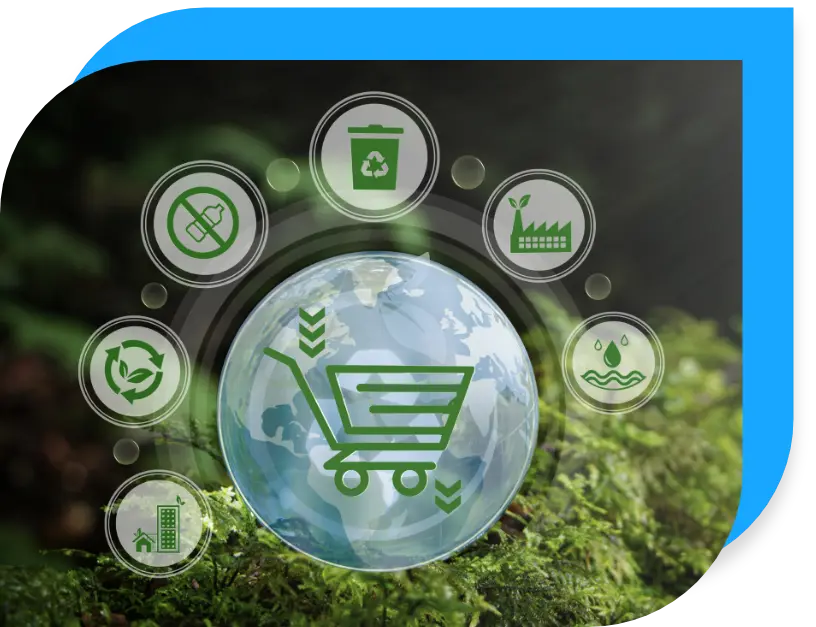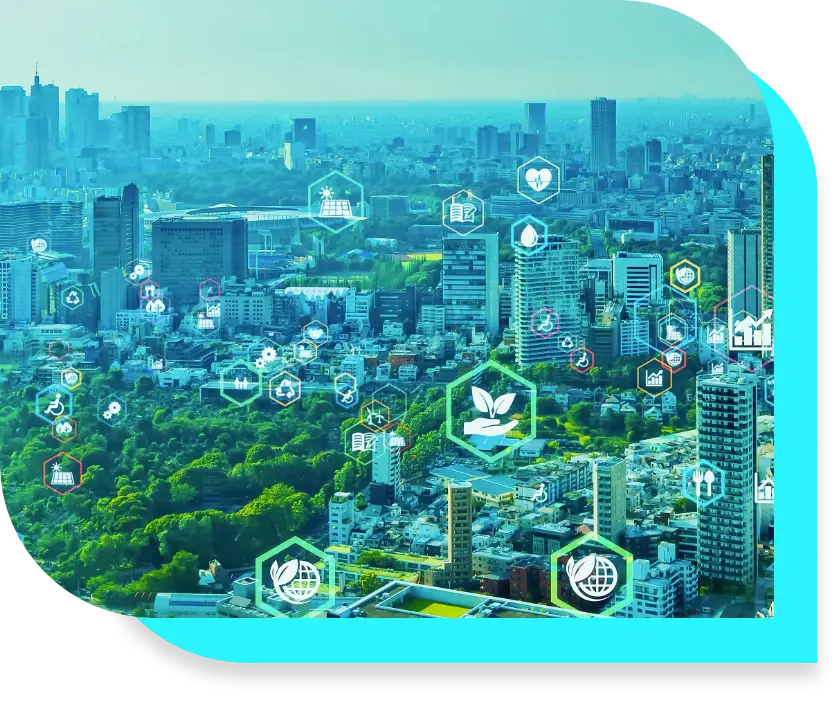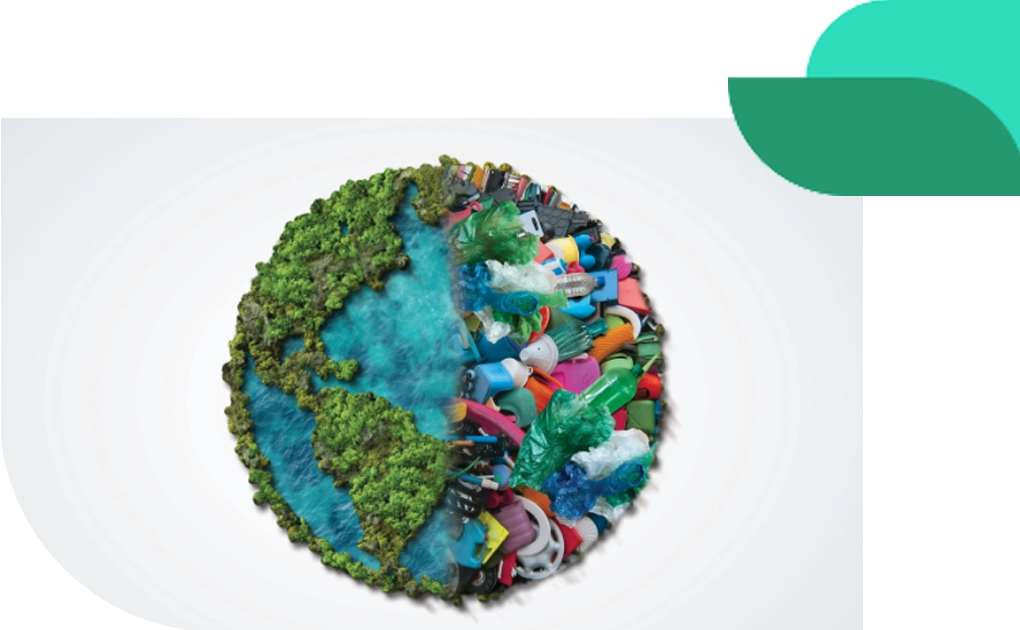Don’t Waste Our Earth: Can We Bin Singapore’s Consumer Culture?
Every year, the world produces over 2 billion tons of municipal solid waste. By 2050, this figure is expected to have risen by 70%.1 While much of the global conversation around sustainability focuses on proper waste management, such as recycling and biodegradable alternatives, the reality is that these solutions only address part of the problem. The real issue runs deeper: overconsumption.
International Day of Zero Waste (30 March) serves as a crucial reminder that waste isn’t just about disposal–it begins the moment we decide to purchase something. From manufacturing and packaging to transportation and eventual disposal, 60% of global greenhouse gas emissions come from consuming goods and services.2 Every purchase we make, no matter how small, has an environmental cost even before it becomes waste.
Singapore, known for its cleanliness and efficiency, faces unique challenges regarding waste management. With limited land available for disposal and a shortage of natural resources, our nation cannot rely solely on traditional waste management solutions. Additionally, a deeply ingrained buy-and-throw-away culture fuels excessive consumption, making it more difficult to reduce waste generation from the outset.

Singaporeans have a shopping problem. Half of those surveyed in 2019 agree, citing shopping as their favourite hobby, a form of relaxation or entertainment.2
Singapore’s urban renewal efforts have further reinforced a preference for new items over longevity, leading to the premature disposal of functional products. The rise of livestream shopping and timed sales has further fueled impulse buying by instilling a sense of urgency. E-commerce sales in Singapore’s service sectors reached S$401.1 billion in 2022, up from S$365.3 billion the year before.3
Our citizens’ fast-paced lifestyles often prioritise convenience over sustainability, contributing to a culture of disposability. In 2019, our small nation became one of the world’s biggest consumers of single-use plastics, with a per capita use of 76kg4. A study by KPMG found that if making an eco-friendly choice requires extra effort or costs, 20% of Singaporean consumers are likely to abandon sustainability altogether.5
Many believe recycling and sustainable alternatives are the solution, yet in Singapore, their effectiveness is limited.
In 2023, Singapore experienced its lowest recycling rate in a decade.6 It’s not that people are not recycling. People are recycling, but much of the items placed in bins are non-recyclable. In 2022, only 6% of plastic waste was recycled, while the remaining 944,000 tonnes were disposed of.7
Biodegradable or eco-friendly packaging isn’t necessarily greener either. In Singapore, where waste is primarily incinerated, materials like cloth or cardboard often have a higher carbon footprint than plastic. That’s why Singapore has not banned single-use plastics—because, while harmful, they are considered the lesser evil when evaluating their entire life cycle.4
Recycling and sustainable materials are important. But ultimately, it’s overbuying that needs to stop—especially with Semakau Landfill projected to reach full capacity by 2035.5
We are familiar with “Reduce, Reuse, Recycle,” a mantra from climate activists. While we know what we should do, breaking the habit of relying on cheap plastics and disposables is challenging. Expecting Singaporeans who regularly shop on apps like Shopee or Lazada to suddenly stop may not be effective.

A more practical first step is recognising that our consumer choices directly impact the environment, and taking the time to learn how to recycle properly. National Environment Agency (NEA) offers easy-to-access resources like its recycling search engine7 to help individuals identify what can and cannot be recycled, enabling better trash sorting.
Avid shoppers can consolidate their online purchases to minimise single-use plastic packaging from multiple small orders, thereby lowering their carbon footprint. They can also opt for slower, more eco-friendly shipping options and consider buying secondhand items instead of new ones. (Someone in Singapore might be trying to sell something they used only once!)

Although SP Group primarily provides utility services, we are constantly innovating to realise our vision of a sustainable, low-carbon future. While our solutions are not directly linked to waste management, individuals and businesses can leverage some of them to help mitigate the impacts of overconsumption.
In 2019, SP Group and Gardens by the Bay piloted a zero-waste gasification system that converts waste into thermal energy and biochar. This technology could reduce carbon emissions by up to 20%, helping Singapore move toward sustainable zero-waste districts and a circular economy.
SP Group also provides renewable energy solutions for companies, potentially manufacturing and logistics companies to reduce their dependence on fossil fuels and, consequently, lower their carbon footprint throughout various stages of the product life cycle.
Users of the SP Utilities app can access the My Carbon Footprint calculator to estimate their carbon footprint based on lifestyle habits such as energy consumption, waste, and shopping.
Changing everyone’s attitudes towards consumption will take time. Nevertheless, we must remain committed to the journey. By embracing mindful purchasing choices and actively reusing items, we can drastically reduce waste and pave the way for a more sustainable future.

At SP Group, we are dedicated to leading this transformation through innovative solutions aimed at reducing waste and dependence on fossil fuels that contribute to global warming. Let’s move towards a future where sustainability is second nature together. To learn more about how SP Group is enabling this change and how you can get involved, contact us today.
Footnotes
1The World has a Waste Problem. Here’s How to Fix It, www.ifc.org/en/blogs/2024/the-world-has-a-waste-problem
2Resetting the throw-away lifestyle, www.todayonline.com/commentary/resetting-throw-away-lifestyle-1862226
3The convenience and the curse of online shopping: How e-commerce is fuelling addiction, wastage, www.channelnewsasia.com/today/big-read/online-shopping-convenience-addiction-wastage
4The Big Read: Reducing single-use plastics and disposables - are we there yet? Or are companies just greenwashing?, www.channelnewsasia.com/today/big-read/big-read-reduce-single-use-plastics-disposables-companies-greenwashing-4297071
5More than 50% of consumers in S'pore will not pay more for sustainable packaging: Study, www.straitstimes.com/singapore/more-than-50-of-consumers-in-spore-will-not-pay-more-for-sustainable-packaging
6Waste Statistics and Overall Recycling, www.nea.gov.sg/our-services/waste-management/waste-statistics-and-overall-recycling
7Recycling Search Engine, www.nea.gov.sg/recycling-search-engine

